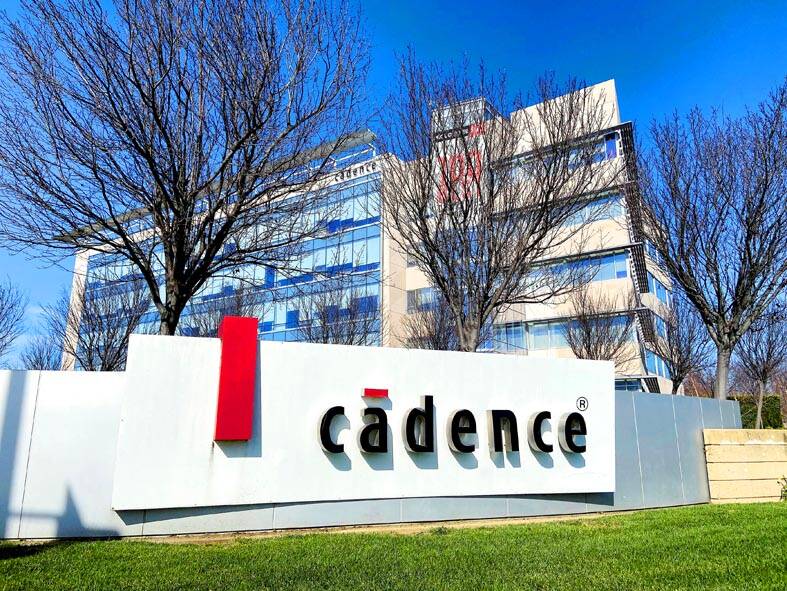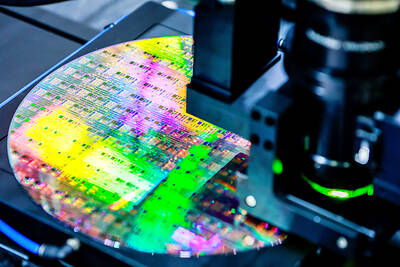Cadence Design Systems Inc has pleaded guilty to charges accusing the company of contravening US export controls by selling hardware and software to China’s National University of Defense Technology.
The San Jose, California-based company, a maker of chip design tools, said it took a one-time charge of US$140.6 million related to settling cases brought by the US Department of Justice and the US Department of Commerce’s Bureau of Industry and Security.
The Chinese institution is under military control and was placed on the commerce department’s entity list in 2015 for using US components to produce computers that support nuclear explosive simulation and military simulation activities, the justice department said in a statement.

Photo: Reuters
The breaches occurred from 2015 to 2021, the justice department said.
Doing business in China, the largest market for semiconductors and related technology, has become increasingly difficult for Cadence Design and its peers under increasing restrictions put in place by Washington aimed at protecting national security, but the companies did win a recent reprieve.
US President Donald Trump’s administration earlier this month lifted a stipulation that required export licenses for chip design software to Chinese customers.
Separately, Cadence Design raised its revenue forecast for this year to between US$5.21 billion and US$5.27 billion.
That compares with an average of analysts’ predictions of US$5.2 billion.
Cadence Design and rival Synopsys Inc dominate the market for software and computers used to design semiconductors and other electronics.
Synopsys earlier this month completed the US$35 billion takeover of Ansys Inc after securing China’s approval amid mounting geopolitical tensions.

TECH TITAN: Pandemic-era demand for semiconductors turbocharged the nation’s GDP per capita to surpass South Korea’s, but it still remains half that of Singapore Taiwan is set to surpass South Korea this year in terms of wealth for the first time in more than two decades, marking a shift in Asia’s economic ranks made possible by the ascent of Taiwan Semiconductor Manufacturing Co (TSMC, 台積電). According to the latest forecasts released on Thursday by the central bank, Taiwan’s GDP is expected to expand 4.55 percent this year, a further upward revision from the 4.45 percent estimate made by the statistics bureau last month. The growth trajectory puts Taiwan on track to exceed South Korea’s GDP per capita — a key measure of living standards — a

Samsung Electronics Co shares jumped 4.47 percent yesterday after reports it has won approval from Nvidia Corp for the use of advanced high-bandwidth memory (HBM) chips, which marks a breakthrough for the South Korean technology leader. The stock closed at 83,500 won in Seoul, the highest since July 31 last year. Yesterday’s gain comes after local media, including the Korea Economic Daily, reported that Samsung’s 12-layer HBM3E product recently passed Nvidia’s qualification tests. That clears the components for use in the artificial intelligence (AI) accelerators essential to the training of AI models from ChatGPT to DeepSeek (深度求索), and finally allows Samsung

Taiwan has imposed restrictions on the export of chips to South Africa over national security concerns, taking the unusual step of using its dominance of chip markets to pressure a country that is closely allied with China. Taiwan requires preapproval for the bulk of chips sold to the African nation, the International Trade Administration said in a statement. The decision emerged after Pretoria tried to downgrade Taipei’s representative office and force its move to Johannesburg from Pretoria, the Ministry of Foreign Affairs has said. The move reflects Taiwan’s economic clout and a growing frustration with getting sidelined by Beijing in the diplomatic community. Taiwan

READY TO HELP: Should TSMC require assistance, the government would fully cooperate in helping to speed up the establishment of the Chiayi plant, an official said Taiwan Semiconductor Manufacturing Co (TSMC, 台積電) yesterday said its investment plans in Taiwan are “unchanged” amid speculation that the chipmaker might have suspended construction work on its second chip packaging plant in Chiayi County and plans to move equipment arranged for the plant to the US. The Chinese-language Economic Daily News reported earlier yesterday that TSMC had halted the construction of the chip packaging plant, which was scheduled to be completed next year and begin mass production in 2028. TSMC did not directly address whether construction of the plant had halted, but said its investment plans in Taiwan remain “unchanged.” The chipmaker started